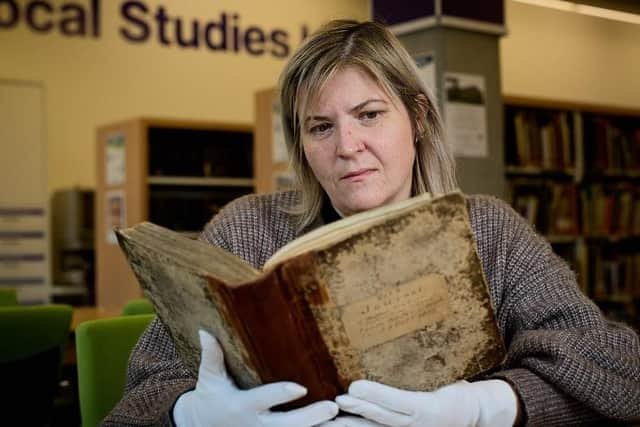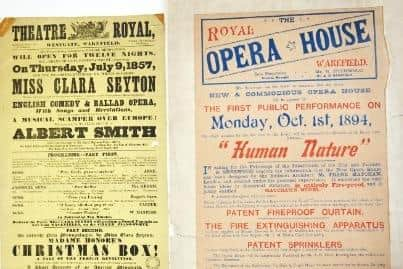19th century manuscripts, diaries, and scrapbooks that have been hidden from public to be digitised thanks to £98K grant
and live on Freeview channel 276
The funding will enable Wakefield Libraries to digitise original manuscripts, diaries, and scrapbooks that date back to the 19th century.
Until now they have been largely hidden from the public because of their fragile conditions.
Advertisement
Hide AdAdvertisement
Hide AdCoun Michelle Collins, Cabinet Member for Culture, Leisure and Sport, said: “What makes these archives so special is that they capture the daily lives and thoughts of working people in Victorian Wakefield. They reveal a vibrant town with a lively social scene and regular public events, along with accounts of the political turmoil being played out in the 1800s.


“Once work on digitising the collections is complete, all of us will be able to read and view material from our devices or in a local library. We’ll also be engaging with younger audiences, by producing printed material and school packs, to inspire creativity and connect them with their heritage.
“I hope everyone will take some time to take a look at these archives, once they are ready, and delve into the past to get a perspective on what life was like a few hundred years ago.”
Luke Burton, Director Libraries, Arts Council England, said: "By enabling these diaries, manuscripts and scrapbooks to be accessed in different ways, more people will be able to learn about 19th century life in the local area from fascinating resources such as Matthew Tomlinson’s diaries recounting his life as a farmer and the Fox Manuscripts.
Advertisement
Hide AdAdvertisement
Hide Ad"I’m sure that the opportunity to explore their local heritage through these resources will appeal to many in the community for years to come.”


Work has already begun, in partnership with volunteers from the Wakefield Historical Society, to transcribe the handwritten journals of a tenant farmer, Matthew Tomlinson from Lupset, who was writing between 1804 and 1839.
He has been described as a rare voice from the working classes. His diaries capture his thoughts and opinions on national and local events, including in 1837 disruptions to the elections that were being held in Wakefield.
An archivist will be employed to assess and make recommendations on conservation and digitisation of key elements of another major collection from Wakefield bookseller and stationer, John Cryer, who owned a shop in the city centre.
Advertisement
Hide AdAdvertisement
Hide AdHe left behind dozens of scrapbooks that contain historical observations, inscriptions, flyers, pamphlets, handbills (leaflets), posters and prints, many of which are rare survivals of their era, as they were designed to be disposable.
The scrapbooks date from around 1810-1865 and have already proven of interest to academic researchers studying disciplines as wide apart as politics, and circuses.
The first written history of Pontefract, that has never been published before in its entirety will also be going online and be accessible to the public at special touch screen kiosks around the town. The author, George Fox was a businessman and Alderman of Pontefract who had a passion for history.
His manuscripts, at Pontefract library, document the history of Pontefract from the earliest times to the mid-Victorian period with handwritten illustrations.
Work on all three collections will be complete in 2025.